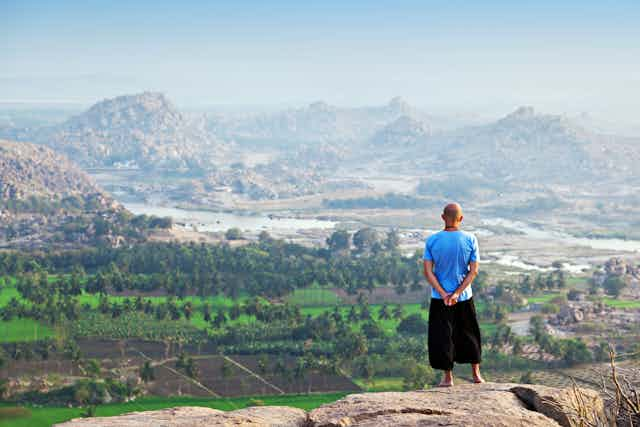Without nature, humans could be neither healthy nor happy. And yet the natural world can be completely ransacked without causing even a tiny blip on our usual measures of economic progress or poverty.
A major UN environmental meeting recently looked at launching an assessment of the different values that people attribute to nature, and what nature contributes to human societies. However, these high level discussions will be futile unless our measures of societal progress expand to explicitly include what nature does for human well-being and prosperity, especially for poor people.
Nature matters to people’s well-being in many different ways. It obviously provides us with basic needs such as food, clean air and water, as well as protection from environmental hazards. There is also a clear relationship with both physical and mental well-being, especially for those who are fortunate enough to have access to green spaces.
Beyond these instrumental roles, there is also evidence from around the world that nature is a more fundamental contributor to people’s sense of self. It is an integral part of what constitutes well-being, captured for some in the awe-inspiring moments when standing on top of a mountain, the breath-taking view of a beautiful river, or in the feeling of freedom associated with traversing a wide open landscape.
The problem with economic indicators
Despite the value we get from nature, our measures of progress and well-being remain much narrower, focused on what is visible and measurable. Gross Domestic Product (GDP) has been the most prominent approach since the end of World War II, with GDP seen as a useful snapshot of the state of the economy and people’s well-being. What these figures often hide are those things, like the role of nature, that are not measured in the monetary economy, but are an important part of daily life and can be crucial for sustaining future prosperity.
There are alternatives. One that has gained some momentum is the Inclusive Wealth Index, which takes into account broader measures of human and natural well-being – its most recent assessment suggested that conventional GDP figures had greatly exaggerated growth over the period 1992-2010. In international development, the UN’s Human Development Index and the “multidimensional poverty index” both recognise a larger set of issues, combining material standards with measures of health and education. But they still do not adequately incorporate the role of nature.

Ignoring nature creates some perverse paradoxes. Measured GDP might actually increase as a consequence of a major environmental disaster, because of the economic activity created by the clean up and repair. Meanwhile, the environmental losses themselves don’t show up in economic measures. A country could get rich by cutting down all its primary forests (and many have), but the associated loss of habitat and wild species would not feature in national accounts.
Governments continue to make decisions based on a key set of headline figures. These include GDP and per capita income, which reflect economic prosperity, and, in poorer countries, the extent and incidence of poverty. But we can do better: our ongoing research focuses on developing environmentally-adjusted measures of multidimensional poverty, based on the insight that people are typically poorer when they do not have access to nature.
Our research suggests that failing to consider these missing environmental aspects can result in an incomplete assessment of the multiple dimensions and underlying drivers of poverty. Consequently, the identification of the poor, as well as an understanding of what makes them poor, risks being partial, thereby posing a challenge to addressing poverty adequately.
The current status quo fails people, especially the poor, and also threatens future prosperity by undervaluing nature. Those who benefit from the current approaches are typically global elites who profit from environmental destruction (which goes unrecognised).
The losers are those most dependent on nature for their livelihoods and those especially vulnerable to environmental change. Even if nature is valued, it is typically converted into money equivalents, which favours those who are able and willing to parcel out nature into small commoditised bundles, which can then be sold to the highest bidder. This fails to take into account the views of those who believe that nature matters in other ways or in its own right, who care about the beauty of nature and the sheer joy that it provides to many.
The consequences of neglecting people’s varied views and aspirations have become apparent from recent political events in Europe and the US. Nature matters to our well-being, and people see their relationship with nature in many different ways. Recognising this is a crucial step towards building a more inclusive, equitable and sustainable society.

